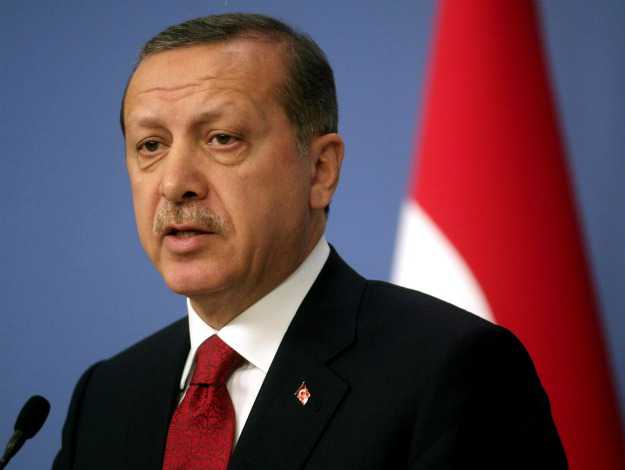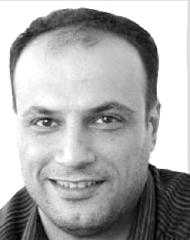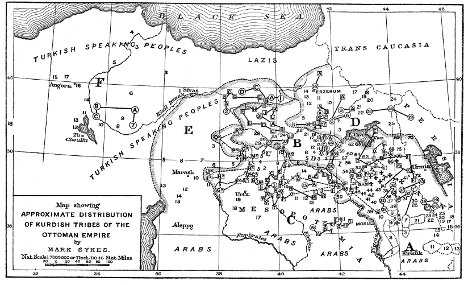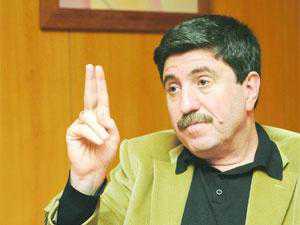Turkey’s Kurdish question demands brave new moves
By Kaya Genç November 17, 2011, 6:21 pm
ISTANBUL, Turkey: Who could have imagined that one day pedestrians in Istanbul’s most artistic and liberal neighborhood of Cihangir would stumble upon a massive wall of graffiti that reads, simply and terrifyingly, “Exterminate all Kurds”? That day came earlier this month.
Something has happened in Turkey that has made racism, once again, an everyday occurrence. Yet there are concrete steps that can be taken to halt a seemingly endless cycle of hatred.
Turkey’s 30-year conflict with Kurdish separatists has created an ideal habitat for racism. Ethnically different from the majority of Turks, many Kurds have supported a political movement that has aimed, among other things, to legalize the use of the Kurdish language and expand Kurdish rights in the public sphere. Kurds have also felt discriminated against in terms of where they could live and the schools they could enroll in. One radical group, the Kurdistan Workers’ Party (PKK), adopted a secessionist agenda and has used violence against Turkish security forces, as well as civilians, sparking sporadic clashes between the PKK and the Turkish government over the last three decades.
Over the years, a number of attempts have been made to defuse the conflict. For instance, in 2002 Turkish Prime Minister Recep Tayyip Erdoğan lifted the state of emergency in the Kurdish-populated areas in eastern Turkey and in 2009 his government began what he called the “Kurdish opening”, a multi-pronged approach to resolving tensions between the Turkish government and the country’s Kurdish population.
Turkey’s state television soon began broadcasts in Kurdish, and economic and political relations with the Kurdistan Regional Government in Iraq provided a more peaceful and democratic atmosphere that was publicly supported by both Turkish and Kurdish intellectuals.
During the last two years, however, things began to go alarmingly wrong, resulting in public disputes between Turkish and Kurdish politicians. Some of Erdoğan’s political maneuvers were labeled fascist by Kurdish politicians, while Kurds were accused of pursuing an uncompromising agenda. Both sides then reached, once again, for their weapons.
It is high time that both sides search for democratic and non-violent solutions.
A great responsibility lies with Erdoğan’s government. His party should press strongly for dialogue and reform that will provide political solutions to the inequalities Kurds have been subjected to for so long. We don’t yet have comprehensive anti-discrimination legislation, and so Turkey should ratify all international agreements aimed at ending racial discrimination.
Furthermore, the government and civil society must reassess Article 301 of the Turkish Penal Code, which forbids insulting Turkish identity, Turkey or its government institutions, makes it extremely difficult to have an open discussion on matters related to national identity. It is still in place and used arbitrarily, and is a threat to anyone who belongs to a political or ethnic minority.
The responsibility to find democratic and peaceful solutions also lies with Turkish Kurds. Political violence in the form of suicide attacks and assaults to military bases have proved to be extremely injurious for Kurdish rights. Putting an end to aggressive attacks towards Turkey’s security forces can contribute to solving the current impasse. Kurdish politicians have enormous influence over their people. They have earned their people’s trust and respect and they will need to take the lead in any political solution.
After all, the question “What do Kurds want?” is not very difficult to answer. Turkey’s election limit, which excludes parties that have less than ten percent of all votes from the parliament, makes it difficult for comparatively smaller parties — such as the Peace and Democracy Party which represents Kurdish interests — to participate in the political arena. This cut off point should be done away with to allow democratically elected political representation from minority political movements.
Revising the definition of “Turkishness” in the constitution — making it a general concept rather than one related to a specific race or ethnic group — will also go a long way toward building goodwill.
In addition, Kurds are asking the government to improve prison conditions for Kurdish political prisoners, including PKK leader Abdullah Öcalan. Even though conditions for inmates have improved dramatically over the last decade, the prison environment for political inmates still remains a concern for many.
It is not force but an ambitious new political agenda that will bring resolution to Turkey’s greatest conflict of the last century. For Erdoğan and his Kurdish counterparts, these steps will cost little, allowing Turkey to win a long-deserved peace, hopefully wiping out once and for all the horrifying graffiti of the past.
Kaya Genç is an Istanbul-based novelist and scholar specialising in late Victorian literature. Visit his blog, Musée des Beaux Arts, at kayagenc.blogspot.com. This article was written for the Common Ground News Service (CGNews).
via Turkey’s Kurdish question demands brave new moves.






